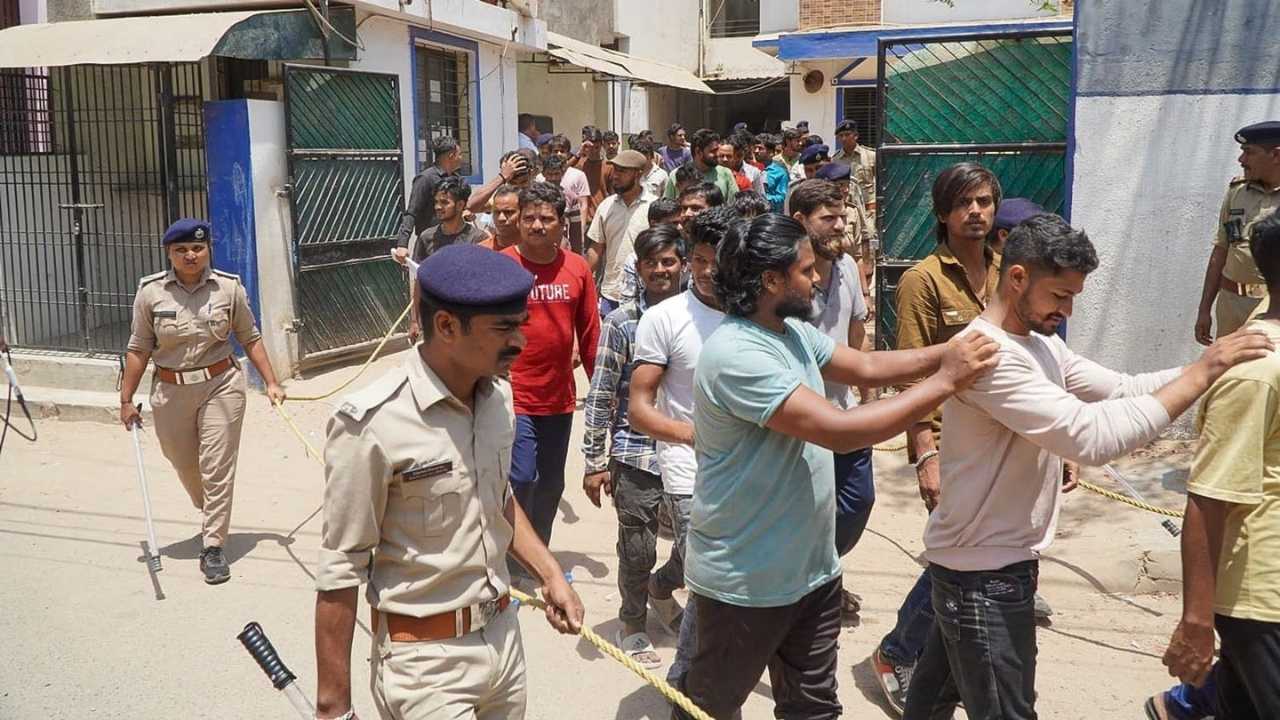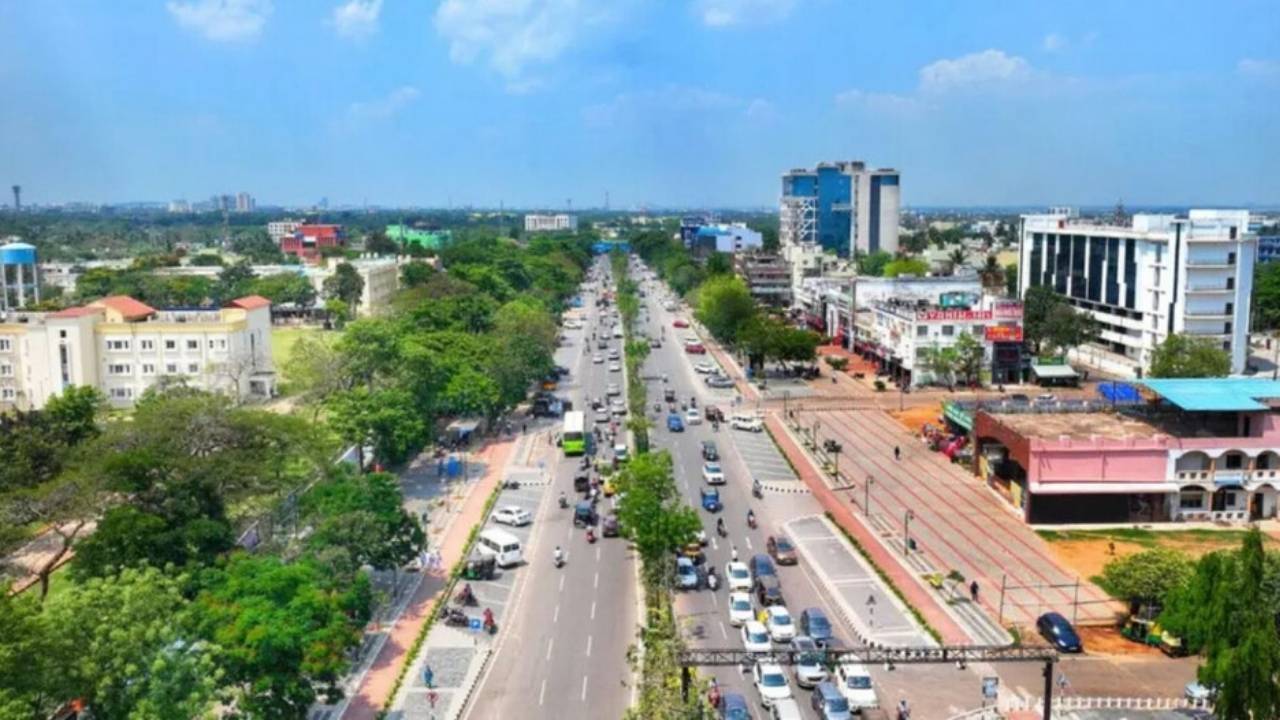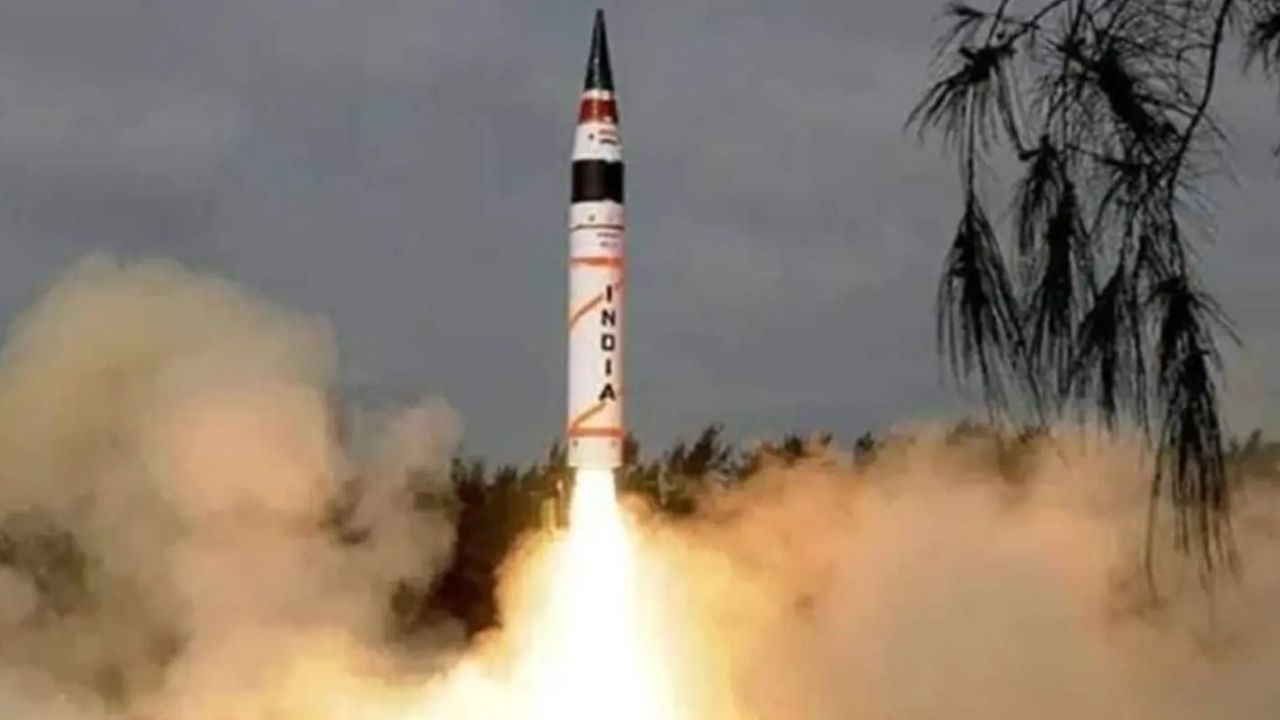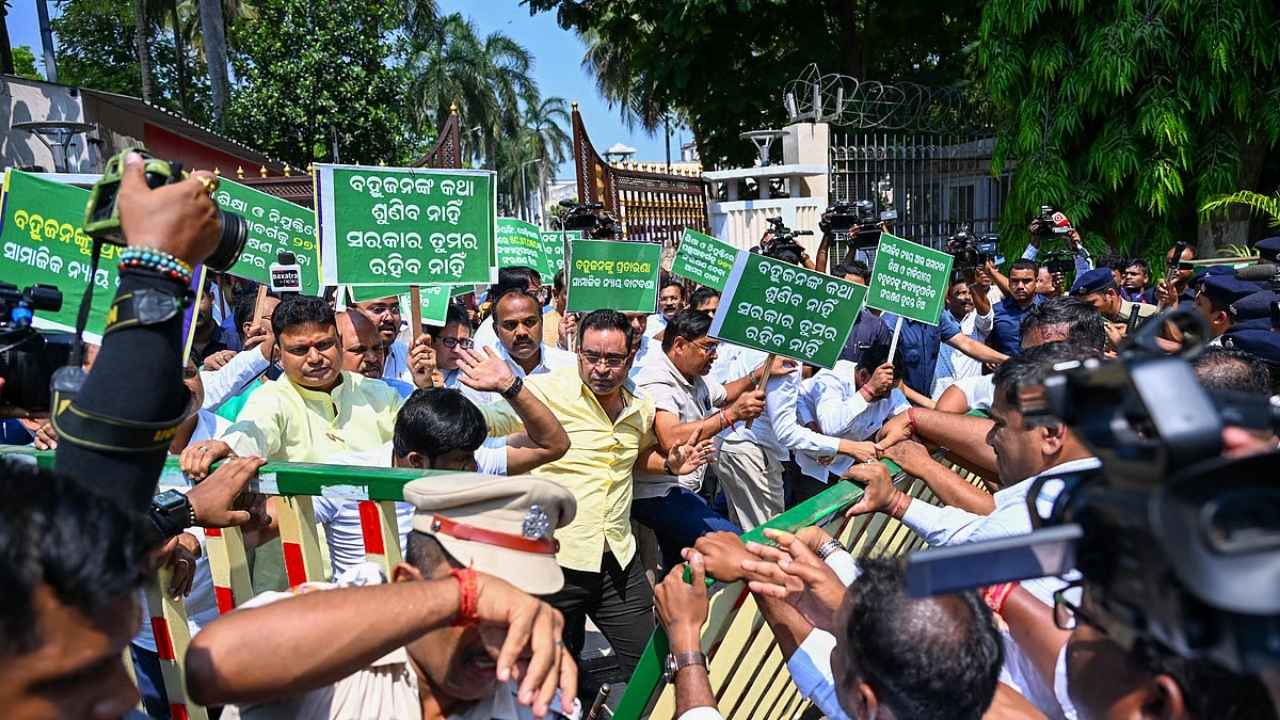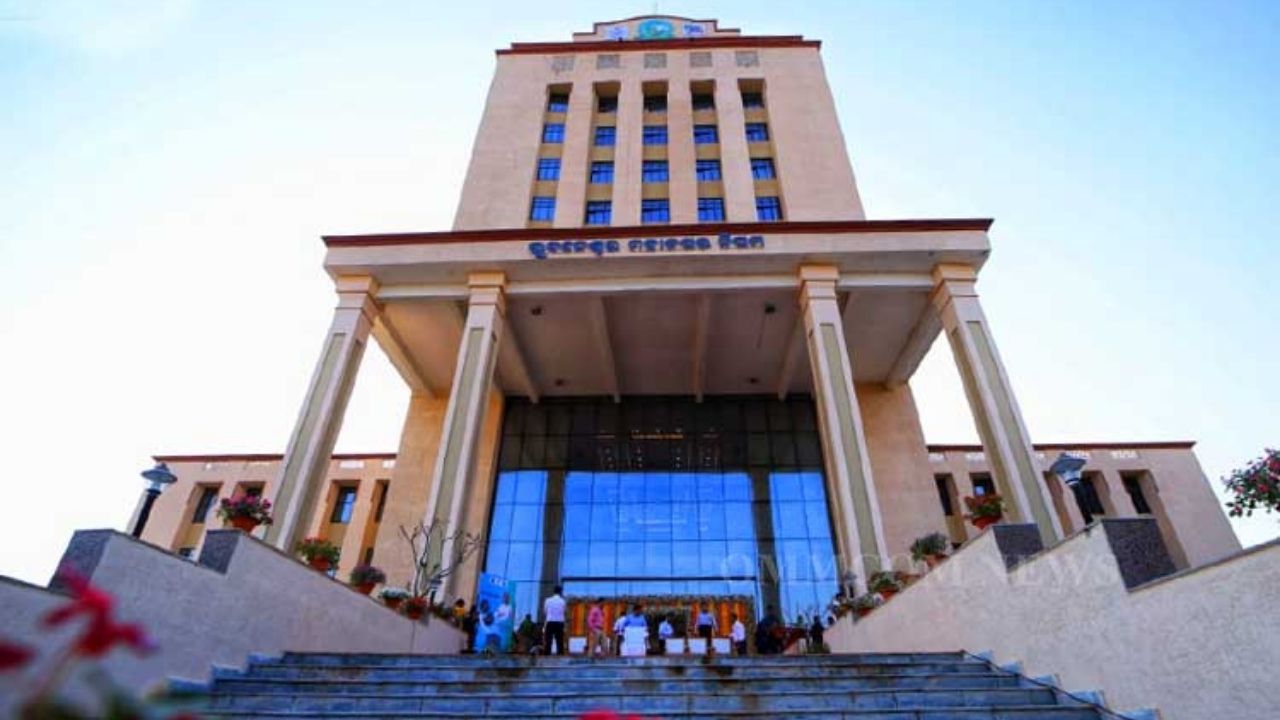In the state of Odisha, authorities have detained 44 Bengali-speaking migrant workers as part of an ongoing citizenship verification process. This has sparked a national debate about migration, identity, and the rights of migrant workers. These workers, many of whom come from West Bengal, have been detained as officials continue to scrutinize their documentation. While the government defends its actions as necessary to maintain national security, critics argue that these detentions may be part of a larger issue of harassment based on language and regional identity.
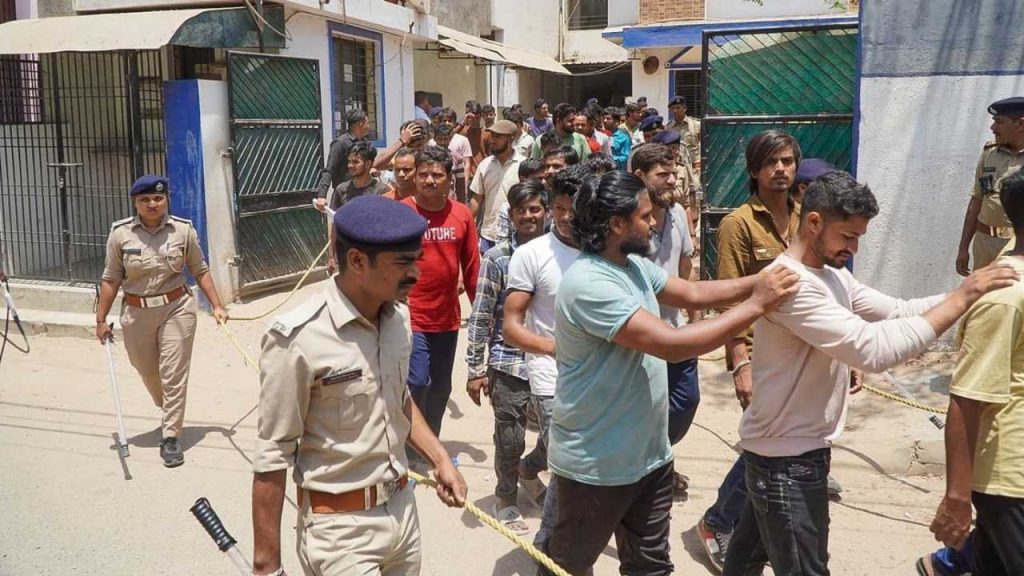
Odisha Holds 44 Bengali Migrant Workers
| Key Point | Details |
|---|---|
| Current Number Detained | 44 Bengali-speaking migrant workers remain in custody. |
| Reason for Detention | Citizenship verification due to concerns over illegal immigration. |
| Location | Detained workers are in Jharsuguda district, Odisha. |
| Release Status | 277 workers have been released after proving their citizenship. |
| Political Response | West Bengal’s Trinamool Congress (TMC) demands release of detainees. |
| Legal Action | Calcutta High Court has intervened, seeking a report on the issue. |
| Impact on Workers | Many detained workers have valid documents but were detained anyway. |
For more details on the ongoing situation, visit the Indian Express.
The ongoing citizenship verification process in Odisha has sparked significant debate and concern, particularly for migrant workers. While the government defends its actions as necessary to maintain national security, political leaders, human rights advocates, and the migrant workers themselves are questioning the fairness and legality of the detentions. As the situation evolves, it highlights the complex intersection of immigration, identity, and politics in India today. Moving forward, it will be crucial for authorities to ensure transparency, fairness, and clear communication to protect the rights of migrant workers.
The Citizenship Verification Controversy in Odisha
The state of Odisha recently conducted a series of raids in the Jharsuguda district, where many Bengali-speaking migrant workers are employed. Authorities detained 44 individuals under suspicion that they may be illegal migrants from Bangladesh or Myanmar’s Rohingya population. This move is part of a larger initiative by Odisha’s government to verify the citizenship status of migrant workers in the region.
While 277 workers have been released after proving their Indian citizenship, the 44 still in detention are awaiting further verification. These workers primarily hail from districts in West Bengal such as Nadia, Murshidabad, Malda, Birbhum, and South 24 Parganas. Many of them work in sectors like construction, mining, and industrial labor.
So, why is this happening?
The government claims that this verification is necessary to prevent illegal immigration from neighboring countries. According to authorities, individuals who cannot provide the necessary documents to prove their Indian citizenship are considered suspects, and their status needs to be verified. Inspector General Himanshu Lal stated that the verification process is being conducted carefully to avoid mistakes.
However, this action has raised questions from both migrant workers and political leaders. Critics argue that the process may unfairly target Bengali-speaking workers and that the lack of clear communication around what qualifies as valid documentation is contributing to confusion and fear among the workers.
Key Issues and Concerns
- Language and Identity Politics
Many of the detained workers are Bengali speakers, which has led to concerns about discrimination based on linguistic and regional identity. The controversy is reminiscent of broader political and cultural tensions in India, where language and identity play an important role in shaping perceptions of national belonging. - Legal and Human Rights Concerns
West Bengal’s ruling party, the Trinamool Congress (TMC), has voiced strong opposition to the detentions, arguing that many of the workers possess valid documentation. TMC MP Mahua Moitra, for instance, pointed out that 23 of the detained individuals hail from her constituency and are being held unlawfully. She has demanded their immediate release. - Judicial Intervention
The Calcutta High Court has stepped into the matter, demanding a report on the detentions from the Ministry of Home Affairs and the Chief Secretary of West Bengal. The court has posed several questions to authorities, including whether the detainees were informed of the reasons for their detention and whether they were brought before a magistrate in the required time frame. This judicial oversight indicates the legal complexity of the case and the need for transparency in such large-scale operations. - The Role of Politics in Immigration Policy
The political fallout from these detentions is significant. While the Odisha government stands firm on its need to verify citizenship, political parties in West Bengal, particularly the TMC, have condemned the move as politically motivated. These tensions underscore the role that local and national politics play in immigration and citizenship issues in India.
How Does the Citizenship Verification Process Work?
The citizenship verification process in Odisha is part of a broader effort to root out illegal immigration. Here’s how the process typically works:
- Raids and Detentions:
Authorities identify areas where migrant workers, especially from neighboring countries, are known to live and work. These areas are subject to raids, and individuals are detained if they are unable to produce valid proof of Indian citizenship. - Verification of Documents:
After being detained, individuals are asked to provide official documents that confirm their citizenship status. This could include voter ID cards, Aadhar cards, birth certificates, or other government-issued documents. - Release or Continued Detention:
Those who can prove their citizenship are released. However, if individuals fail to provide sufficient documentation, they remain in custody until their status can be further verified. - Court and Political Oversight:
In many cases, such detentions prompt political or judicial intervention. For instance, the Calcutta High Court has already ordered a report on the legality of the detentions in Odisha, while political leaders are actively involved in advocating for the release of those detained.
What Are the Implications of These Detentions?
The detentions in Odisha are not just about verifying citizenship; they are part of a much larger national debate about immigration, identity, and national security. Here’s what these events mean for the broader context:
- Fear and Uncertainty Among Migrants:
Many migrant workers in India live with a sense of uncertainty, as their status can be questioned at any time. For those who have been living and working in India for years, being detained based on suspicion alone can be frightening. The lack of clear communication about what constitutes valid documentation only adds to the confusion. - Impact on Migrant Laborers:
Migrant workers play a critical role in India’s economy, especially in sectors like construction and mining. The detentions may discourage workers from coming to states like Odisha, leading to labor shortages in key industries. Employers who rely on these workers may also be forced to deal with disruptions in their operations. - Rising Nationalism and Anti-Immigrant Sentiments:
The focus on verifying the citizenship status of migrant workers could be seen as part of a broader national trend of rising nationalism and increasing skepticism toward immigrants. While these efforts are often framed as national security measures, they can also fuel anti-immigrant sentiment.
Odisha Detains Over 200 Bengali Migrant Workers; TMC Alleges Illegal Detention
Aspirants Duped of Rs 65 Lakh, Accused Arrested in Berhampur
FAQs on Citizenship Verification in Odisha
Q1: Why are Bengali-speaking workers being detained in Odisha?
The authorities are conducting a citizenship verification process to identify and deport individuals who may be illegal migrants from Bangladesh or other countries. Bengali-speaking workers are among those detained due to suspicions about their citizenship status.
Q2: What happens to the detained workers?
Some workers have been released after proving their citizenship, while others are still in detention awaiting further verification.
Q3: How are migrant workers supposed to prove their citizenship?
Migrant workers can prove their citizenship by providing official documents such as voter ID cards, Aadhar cards, or birth certificates.
Q4: What is the role of politics in this issue?
Political leaders, particularly from West Bengal, have raised concerns about the fairness of the detentions, alleging that some workers are being held illegally despite having valid documents.
Q5: What is the legal process for detentions?
The Calcutta High Court has intervened, questioning the legality of the detentions and demanding a report on the matter from the Ministry of Home Affairs.

